HPCL Electrical Syllabus 2022
HPCL Electrical Syllabus 2022: Hindustan Petroleum Corporation Limited (HPCL) has announced 262 vacancies for various posts on the official website @hindustanpetroleum.com. The link to apply online was active from 23rd June 2022. The last date to apply for HPLC Recruitment 2022 is 22 JULY 2022(Tomorrow). The candidates who have an Electrical Engineering degree shall read the full article to know about HPCL Electrical syllabus 2022. A direct link to download the official HPCL Electrical Syllabus 2022 is also provided in the article. The aspirants shall read the full article to know the important information regarding HPCL Electrical Syllabus 2022 and must bookmark this website for further Engineering Job Updates.
Now keep yourself updated with Latest Engineering Government Jobs 24×7 Download ADDA247 App Now! CLICK HERE

HPCL Recruitment 2022 Overview
HPCL Electrical Syllabus 2022: The important information regarding HPCL Recruitment 2022 is tabulated below.
| HPCL Recruitment 2022 |
| Name of Authority |
Hindustan Petroleum Corporation Limited |
| Name of Posts |
Engineer |
| Number of Vacancies |
262 |
| Category |
Engineering Jobs |
| Online Application begins |
23rd June 2022 |
| Online Application Ends |
22nd July 2022 |
| Official Website |
@hindustanpetroleum.com |

HPCL Electrical Syllabus 2022: Detailed Syllabus
HPCL Electrical Syllabus 2022: Candidates can check the detailed HPCL Electrical Syllabus 2022 here. Also, HPCL Syllabus 2022 for all branches is also available on the ADDA247 website. Candidates can download their respective Branch PDFs from there.
Important Engineering Govt. Job Pages
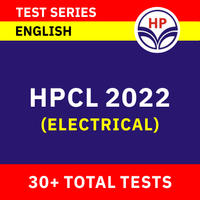
Non-Technical
HPCL Electrical Syllabus 2022: The General aptitude section of the HPCL Syllabus 2022 comprises three different sections that are English Language, Quantitative Aptitude Test & Intellectual Potential test.
| English Language |
- Fill in the blanks
- Direct and indirect speech
- Spelling Test
- Synonyms and antonyms
- Parts of speech
- Comprehension
- Para Jumbles
- Spelling Test
- Sentence Completion
- Error Correction
- Idioms and Phrases
- Word Formation
- Homonyms
- Error Correction
- Sentence Arrangement
- Active and Passive Voice
- Spotting Errors
|
| Quantitative Aptitude |
- Number System
- Pipes And Cisterns
- Partnership
- Simple and Compound Interest
- Permutations And Combinations
- Simplification
- Time And Distance
- Average
- Mensuration
- Time And Work
- Percentage
- Trigonometry
- Boats And Streams
- Allegation Of Mixture
- Partnership
- Profit And Loss
- Problems On Ages
- H.C.F. And L.C.M Of Numbers
- Ratio And Proportion
|
| Intellectual Potential |
- Puzzle test
- Coding-decoding
- Number series
- Sitting arrangement
- Analogy
- Alpha-numerical sequence puzzle
- Syllogism
- Logical sequence test
- Arithmetical operations
- Direction sense test
- Numbers, ranking, and time sequence test
- Classifications
- Sequential output tracing
- Logical Venn diagram
- Blood relations
- Data Sufficiency
- Alphabet test
|
Related Articles
Electrical Syllabus
HPCL Electrical Syllabus 2022: The essential topics covered in the HPCL Electrical Syllabus 2022 are listed here. For candidates having Electrical Engineering, Paper 2 will consist of questions from this syllabus only. Candidates can download the Electrical Engineering syllabus PDF for free as well. The HPCL Electrical Syllabus 2022 is given below:
| Analog and Digital Electronics |
- Characteristics of diodes
- BJT and FET
- amplifiers – biasing, equivalent circuit, and frequency response
- oscillators and feedback amplifiers
- operational amplifiers – characteristics and applications
- simple active filters
- VCOs and timers
- combinational and sequential logic circuits
- multiplexer
- Schmitt trigger
- multi-vibrators
- sample and hold circuits
- A/D and D/A converters
- 8-bit / 16-bit microprocessor basics, architecture, programming, and interfacing.
|
| Control Systems |
- Principles of feedback
- transfer function
- block diagrams
- steady-state errors
- Routh and Niquist techniques
- Bode plots
- root loci
- lag, lead, and lead-lag compensation
- state-space model
- state transition matrix, controllability, and observability.
|
| Electric Circuits and Fields |
- Network graph, KCL, KVL, node, and mesh analysis, transient response of dc and ac networks
- sinusoidal steady-state analysis, resonance, basic filter concepts
- ideal current and voltage sources, Thevenin’s, Norton’s, and Superposition and Maximum Power Transfer theorems, two-port networks, three-phase circuits
- Gauss Theorem, electric field and potential due to point, line, plane, and spherical charge
distributions
- Ampere’s and Biot-Savart’s laws
- inductance; dielectrics; capacitance
|
| Electrical and Electronic Measurements |
- Bridges and potentiometers
- PMMC, moving iron, dynamometer, and induction type instruments
- measurement of voltage, current, power, energy, and power factor
- instrument transformers
- digital voltmeters and multimeters
- phase, time, and frequency measurement
- Q-meters
- oscilloscopes
- error analysis.
|
| Electrical Machines |
- Single-phase transformer – equivalent circuit, phasor diagram, tests, regulation and efficiency
- three-phase transformers – connections, parallel operation
- auto-transformer
- energy conversion principles
- DC machines – types, windings, generator characteristics, armature reaction and commutation, starting and speed control of motors
- three-phase induction motors – principles, types, performance characteristics, starting and speed control
- single-phase induction motors; synchronous machines – performance, regulation and parallel operation of generators, motor starting, characteristics, and applications
- servo and stepper motors.
|
| Power Electronics and Drives |
- Semiconductor power diodes, transistors, thyristors, triacs, GTOs, MOSFETs, and IGBTs – static characteristics and principles of operation
- triggering circuits
- phase control rectifiers
- bridge converters – fully controlled and half controlled
- principles of choppers and inverters
- basis concepts of adjustable speed dc and ac drives
- Variable speed control of AC machines.
|
| Power Systems |
- Basic power generation concepts
- transmission line models and performance
- cable performance, insulation
- corona and radio interference
- distribution systems
- per-unit quantities
- bus impedance and admittance matrices
- load flow
- voltage control
- power factor correction
- economic operation
- symmetrical components
- fault analysis
- principles of over-current, differential, and distance protection
- solid state relays and digital protection
- circuit breakers
- system stability concepts, swing curves, and equal area criterion
- HVDC transmission and FACTS concepts
- Numeric Relays
|
| Signals and Systems |
- Representation of continuous and discrete-time signals
- shifting and scaling operations
- linear, time-invariant, and causal systems
- Fourier series representation of continuous periodic signals
- sampling theorem
- Fourier, Laplace, and Z transforms
|
CLICK HERE to download HPCL ELECTRICAL SYLLABUS 2022
HPCL Electrical Syllabus 2022 FAQs
Q. How to download HPCL Syllabus 2022?
Ans. A detailed syllabus along with a download link is provided in the article. Refer ADDA247 website for more details.
Q. Does HPCL Recruitment 2022 Exam have negative marks?
Ans. NO there is no negative marking for HPCL Recruitment 2022 Exam.
Q. How to apply online for HPCL Recruitment 2022?
Ans. Candidates can apply for HPCL Recruitment 2022 from the official website. Candidates can also visit the ADDA247 website for more details.
Sharing is caring!

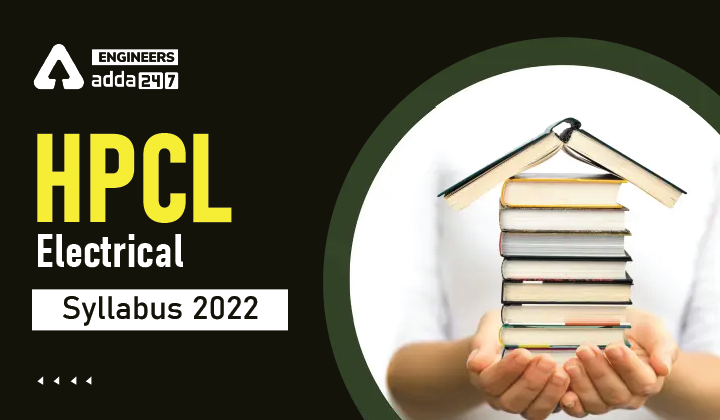




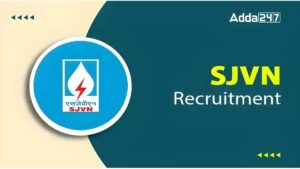 SJVN Apprentices Training Recruitment 20...
SJVN Apprentices Training Recruitment 20...
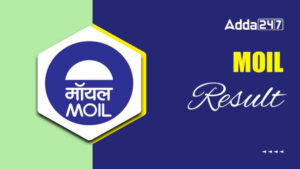 MOIL Result 2025 Will Be Out Soon for 14...
MOIL Result 2025 Will Be Out Soon for 14...
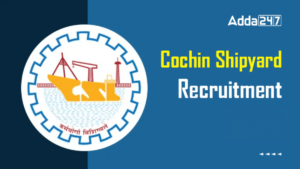 Cochin Shipyard CSL Recruitment 2026 Out...
Cochin Shipyard CSL Recruitment 2026 Out...





